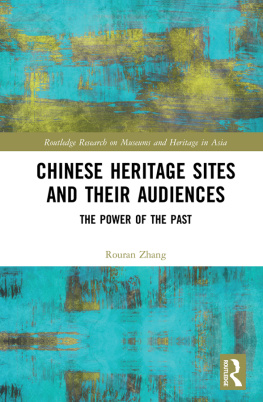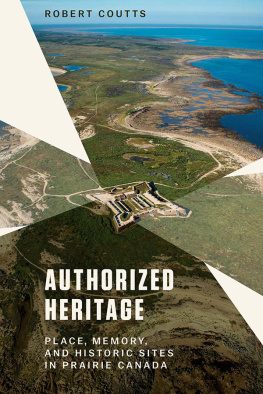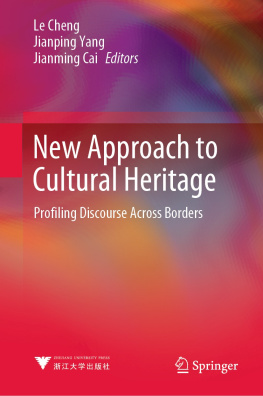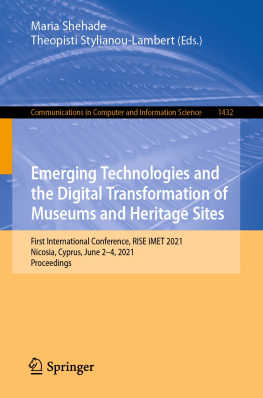Chinese Heritage Sites and their Audiences
Chinese Heritage Sites and their Audiences provides a Chinese perspective on tourists relationship to heritage. Contributing to ongoing debates within heritage and tourism studies, the book offers insights into how and why visitors engage with such sites.
Drawing on interviews with domestic tourists, local residents and heritage officials at the World Heritage sites of West Lake, Xidi and Hongcun, Zhang argues that tourists have agency: when they visit heritage sites, they are doing cultural, social and emotional work, whilst also negotiating cultural meanings. Providing an examination of the complex interactions between locals and tourists, the author then considers how tourists navigate and interpret heritage sites. Finally, Zhang examines whether the government or locally controlled tourism enterprises are more effective in facilitating meaningful cultural interaction between tourists and locals. Overall, the book demonstrates the interrelation between tourism and heritage, and the tensions that are created when the ways in which sites are used differ from the expectations of UNESCO and national or regional site managers.
Chinese Heritage Sites and their Audiences pays particular attention to ongoing debates about heritage performances, the importance of emotions and the agency of tourists, and will thus appeal to academics and students engaged in the study of heritage, tourism, landscape architecture and anthropology.
Rouran Zhang is a lecturer in the College of Tourism and Service Management, Nankai University, China. He is an expert member of ICOMOS-IFLA International Scientific Committee on Cultural Landscapes and ICOMOS International Scientific Committee on Cultural Tourism. He is a Chinese representative of the ongoing collaborative project of ICOMOS and IUCN entitled Culture-Nature Journey.
Routledge Research on Museums and Heritage in Asia
Titles include:
Heritage Politics in China
The Power of the Past
Yujie Zhu and Christina Maags
A Representation of Nationhood in the Museum
Sang-hoon Jang
Chinese Heritage Sites and their Audiences
The Power of the Past
Rouran Zhang
Sacred Heritage in Japan
Edited by Aike P. Rots and Mark Teeuwen
www.routledge.com/Routledge-Research-on-Museums-and-Heritage-in-Asia/book-series/RRMHA
Chinese Heritage Sites and their Audiences
The Power of the Past
Rouran Zhang
First published 2020
by Routledge
2 Park Square, Milton Park, Abingdon, Oxon OX14 4RN
and by Routledge
52 Vanderbilt Avenue, New York, NY 10017
Routledge is an imprint of the Taylor & Francis Group, an informa business
2020 Rouran Zhang
The right of Rouran Zhang to be identified as author of this work has been asserted by him in accordance with sections 77 and 78 of the Copyright, Designs and Patents Act 1988.
All rights reserved. No part of this book may be reprinted or reproduced or utilised in any form or by any electronic, mechanical, or other means, now known or hereafter invented, including photocopying and recording, or in any information storage or retrieval system, without permission in writing from the publishers.
Trademark notice: Product or corporate names may be trademarks or registered trademarks, and are used only for identification and explanation without intent to infringe.
British Library Cataloguing-in-Publication Data
A catalogue record for this book is available from the British Library
Library of Congress Cataloging-in-Publication Data
A catalog record has been requested for this book
ISBN: 978-1-138-62493-1
ISBN: 978-0-429-46033-3
Typeset in Bembo
by Newgen Publishing UK
Contents
The National Natural Science Foundation of China (Grant No. 51908295) and Tianjin Philosophy and Social Science Planning Funds (Grant No. TJGLQN18-002) funded the research on which this book is based.
This book would not have been possible without the support of many people and organisations. First and foremost, I am grateful to Professor Laurajane Smith for her critical and encouraging support. Thank you for your enthusiasm about the topic of this book from the very beginning, and for helping me to understand the meaning of critical heritage and develop the argument of the book. I am also grateful to Professor Ken Taylor for his constant and illuminating encouragement, advice and support for this manuscript. I would also like to thank my friends Dr Steve Brown, Juliet Ramsay, Fergus Maclaren and Professor Robyn Bushell. Their comments on the earlier versions of this manuscript had significant impact on the development of my argument. I would also like to thank Gary Campbell for his professional editing of this manuscript.
I am extremely grateful for the people from the Ministry of Housing and Urban-Rural Development(MHURD), the State Administration of Cultural Heritage (SACH) and the China Tourism Academy; Rusheng Li, Xiaoping Zuo, Wei Tang, Yulin Shen, Zhenpeng Li, Jian Liu, Jin Fu, Xiaoru Yang and Yiyi Jiang; without their support and guidance I could not have finished the book so smoothly. I am also grateful for the people from the China National Commission for UNESCO, the World Heritage Institute of Training and Research for Asia and the Pacific, and the Institute of Architectural History, the Cultural Heritage Monitoring and Management Centre of West Lake, and the Xidi and Hongcun local governments. I also owe thanks to all the tourists and local residents I interviewed in West Lake, Xidi and Hongcun.
Special thanks to Guo Zhan, Rusheng Li, Jinlu Li, Panyan Wang, Zhaozhen Meng, Laili Yang, Xiong Li, Jianning Zhu, Zhenpeng Li, Hongcai Zhao, Fang He, Changhong Bai, Hong Xu, Hanqin Qiu, Yanbo Yao, Ye Chen and Feng Han. They have all been mentors to me since I was an undergraduate. I would also like to thank my colleagues Jieyi Xie, Cut Dewi, Chunxiao Li, Hui Li, Xiaoyi Li, Shai Liang, Kun Zhang, Yujie Zhu, Alexandra Walton, Tzu-Yu Chiu, Kathy Chen, Megan Deas, Jennifer Clynk, Judith Downey, Laura Parker, Jane Smyth, Rachael Coghlan, Emma Wensing, Lachlan Dudley and Sulamith Graefenstein. I enjoyed my time talking with them in the Research School of Humanities and the Arts (RSHA) at the Australian National University and Nankai University.
Last but not least, I have dedicated this book to my family. To my parents, Biyun Sun and Jian Zhang, thank you for your unconditional love and support for my academic career. I am also grateful to my wife, Qian Sun. This book is my special gift to her.
| AHD | Authorised Heritage Discourse |
| CCP | Chinese Communist Party |
| CNKI | China National Knowledge Infrastructure |
| ICOMOS | The International Council on Monuments and Sites |
| ICCROM | International Centre for the Study of the Preservation and the Restoration of Cultural Property |
| ICHC | Convention for the Safeguarding of the Intangible Cultural Heritage |
| IUCN | International Union for Conservation of Nature |






